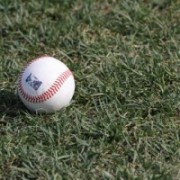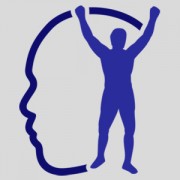Posts
MESSAGE #1179 PRACTICE MAKES IMPERFECT
/0 Comments/in Focus /by admin“Practice makes imperfect. People practice until they ‘think’ they know it. The key is to remain a learner.”
-ELLEN LANGER, Ph.D, Harvard
In conversations I’ve had with Dr. Langer, we spoke about how when practicing, athletes need to be mindful. Don’t just practice in perfect conditions, practice in realistic conditions, i.e., in tennis, practice hitting balls with different pace, spin, and depth coming at you. Practice in sun and wind and extreme cold and heat. Practice with people better than you. Practice with people worse than you.
Notice what is happening, make adjustments.
Rarely will conditions be perfect, so why practice that way?
MESSAGE #1021 WHAT CHAMPIONS DO IN PRACTICE…
/0 Comments/in Attitude, Effort, fitness, Focus, Goal Setting, Practice Perfect /by adminToday’s message is especially dedicated to the great Didi Fisher Weinreb.
What determines if a player becomes a champion?
Part of it is practice.
A lot of practice. 10,000 hours in fact, according to most performance experts.
But practice does not make perfect.
Perfect practice makes perfect. Some call it “deliberate practice” or “purposeful practice.”
Either way, the road to becoming a champion needs the following ingredients:
1. A lot of practice (20 hours per week for 10 years = 10,000 hours).
2. Practice sessions must focus on progress (instead of results).
3. Practice sessions must be focused on improving your weaknesses (AND improving your strengths).
“When most people practice, they focus on the things they can do effortlessly. Expert practice is different. It entails considerable, specific ,and sustained efforts to do something you can’t do well – or even at all. Research across domains shows that it is only by working at what you can’t do that you turn into the expert you want to become,” said psychologist, S.W. Tyler.
Matthew Syed says that “…the practice sessions of aspiring champions have a specific and never-changing purpose: progress. Every second of every minute of every hour, the goal is to extend one’s mind and body, to push oneself beyond the outer limits of one’s capacities, to engage so deeply in the task that one leaves the training session, literally a changed person.”
How will YOU practice today?
MESSAGE #1015 ROGER FEDERER VERSUS YOU
/0 Comments/in Practice Perfect /by adminToday’s message is especially dedicated to all of you who think that Roger Federer was born with more tennis talent than you. And Happy Birthday to tennis great, coach John Carrigan in the UK.
I’m currently reading a great book, “Bounce – Mozart, Federer, Picasso, Beckham, and the Science of Success” by Matthew Syed.
The premise of the book is that hard work, not talent determines success. Syed talks about the iceberg illusion. This is when we see a Roger Federer and only see the end result (tip of the iceberg). What we don’t see is the thousands of hours of hard work that he put into this “end product of a process measured in years…What we do not see is what we might call the hidden logic of success.”
Now here’s the interesting thing…
In 1984 Desmond Douglas, the greatest ever UK table tennis player, was placed in front of a screen containing a series of touch-sensitive pads at the University of Brighton. He was told that the pads would light up in a random sequence and that his task was to touch the relevant pad with the index finger of his favored hand as soon as he could, before waiting for the next pad to light up…After a minute, the task ended and Douglas’s teammates gave him a round of applause. Douglas grinned as the researcher left the room to collate the results. After five minutes, the researcher returned. He announced that Douglas’s reactions were the slowest in the entire England team: he was slower than the juniors and the cadets; slower even than the team manager…Douglas was universally considered to have the fastest reactions in world table tennis…
When Roger Federer returns a service, he is not demonstrating sharper reactions than you and I; what he is showing is that he can extract more information from the service action of his opponent and other visual clues, enabling him to move into position earlier and more efficiently than the rest of us, which in turn allows him to make the return – in his case a forehand cross-court winner…
…Federer’s advantage has been gathered from experience: more precisely, it has been gained from a painstaking process of encoding the meaning of subtle patterns of movement drawn from more than ten thousand hours of practice and competition…It is his regular practice that has given him this expertise, not his genes.
Interesting…
MESSAGE #948 FROM THE BEATLES
/0 Comments/in Attitude, Confidence, Effort, Fear, Focus, Goal Setting, Motivation, Performing Under Pressure, Practice Perfect, Teamwork /by adminThere’s nothing you can do that can’t be done.
Nothing you can sing that can’t be sung.
Nothing you can say but you can learn how to play the game. It’s easy.
Nothing you can make that can’t be made.
No one you can save that can’t be saved.
Nothing you can do but you can learn how to be you in time. It’s easy.
-THE BEATLES
The Beatles are no different from you and me.
“There’s nothing you can do that can’t be done.” It’s easy, just find successful people and do what they’re doing.
John, Paul, George and Ringo had a growth mindset, but they also knew the value of hard work.
In fact, in his book, Outliers, Malcolm Gladwell talks about how instead of playing one hour sets, once in a while in Liverpool, The Beatles went to Hamburg and played 7-8 hour sets seven days a week! Supposedly they were terrible on stage at first, but improved by putting in the time.
Everyone wants be an overnight success, but it takes ten years to become an overnight success…or 10,000 hours, according to Gladwell.
I know what you’re thinking, 10,000 hours is a long time!
I can help make it easier:
1. Instead of focusing on 10,000 hours, focus instead on one good hour…then do it 10,000 times.
2. Enjoy the process and those 10,000 hours will fly by.
3. Remember that hard work beats talent when talent doesn’t work hard.
Also from Outliers…
“The emerging picture from such studies is that ten thousand hours of practice is required to achieve the level of mastery associated with being a world-class expert–in anything. In study after study, of composers, basketball players, fiction writers, ice skaters, concert pianists, chess players, master criminals, and what have you, this number comes up again and again. … No one has yet found a case in which true world-class expertise was accomplished in less time. It seems that it takes the brain this long to assimilate all that it needs to know to achieve true mastery.”
There’s no short-cut…now get to work.
What are you trying to master? Leave your comments below…
MESSAGE #759 BE LIKE JIMMY…
/0 Comments/in Uncategorized /by adminWhen Jimmy Connors was playing, he used to practice with the same intensity that he used when playing matches.
In fact, he practiced for less time than his competitors, but with higher intensity.
Whenever I don’t feel like working out, I work out for less time, but increase the intensity. It works. I get the same result – sometimes better.
Try this technique and let me know your thoughts.
Well, it’s time to hit some tennis balls and observe some lessons at River Walk with the great Sandy Bell, go to a lunch meeting and then play some more at Trump’s club, Mar-a-lago with Trump family friend, David Moya.
Have a great day everyone…
MESSAGE #676 PRACTICE, PRACTICE, PRACTICE…
/0 Comments/in Uncategorized /by adminOnce, Sinclair Lewis, the novelist, was supposed to give an hour long talk to a group of college students aspiring to become writers. He started his presentation with this question: “How many of you really intend to be writers?”
All of the hands went up.
Lewis responded…
“In that case, my advice to you is to go home and write.”
And then he left.



